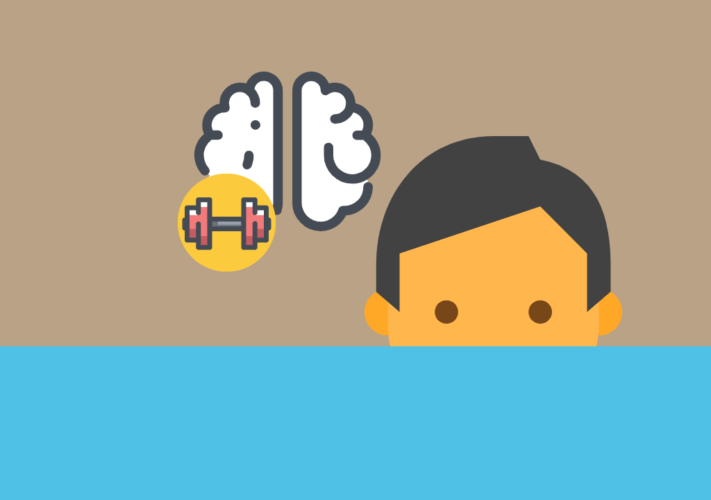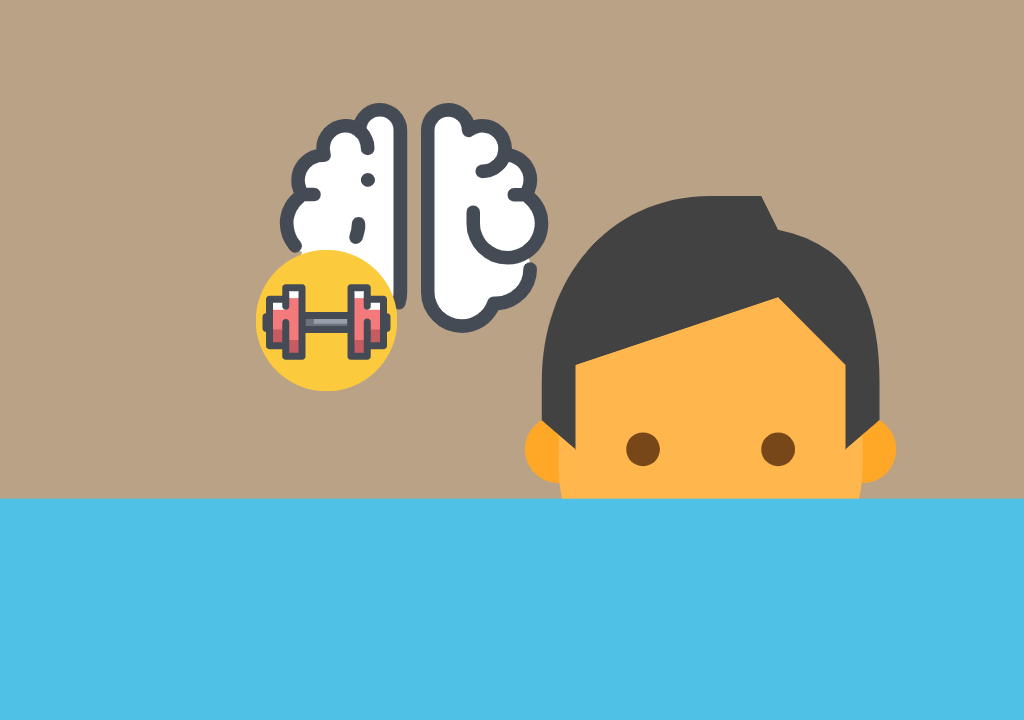Most of the sales training we see today focus on fast-track training. This sort detail a myriad of processes that today is quite frankly – useless. Think about it, information is readily available to buyers at their convenience, so naturally their attention spans are short and need to be captured instantly.
With more emphasis placed on social selling and our ever-changing buying climate – it’s inevitable that salespeople look for new ways to understand buying behaviour. One of these ways is through emotional intelligence training – it’s a powerful way of understanding a customer’s emotions and using this knowledge to inform your decision-making skills.
Emotional intelligence training and sales go hand in hand. It differentiates the good salesperson from the bad. After all – aren’t we drawn to positive, enthusiastic people than the one who are negative and desperate to reach their quota?

Having little to no emotional intelligence can greatly impact a salesperson’s ability to build rapport with a customer. Hitting each call with a hard-sell approach instantly screams “desperate”. But showing understanding and empathy can help the person. Then, those on the other end of the line relax and listen to what you have to say.
What exactly is emotional intelligence?
Emotional intelligence (also known as EI or EQ) is the ability to understand and manage the emotions we exude and how they affect others. By understand said emotions we can use them as tools to evoke feelings of recognition, influence and trust.
Already you can see how these feelings are vital in a sales environment. In order to bank your commission or keep the company afloat you need to make your customers feel like they can trust you. Not only this, but emotional intelligence can change the way you view sales. Instead of seeing it as a chore or daunting exercise, increasing your emotional intelligence can help you strive towards being the best version of yourself.
Breaking down emotional intelligence training in sales
We’ve established that emotional intelligence is the ability to understand and manage motions in yourself and others. This can be broken down into three more points which encompass what it means to be an emotionally intelligent sales person: managing client relationships, self-awareness and self-managements:
Managing client relationships
Managing client relationships is integral for future business opportunities. It’s more about getting your customers to convince themselves to buy from you as opposed to influencing with “amazing selling skills”. Management of client relationships boils down to the following:
- Conflict resolution
- Management style
- Influencing experience
Should any issues arise, an emotionally intelligent salesperson will be able to neutralise the issue. Resolving them with empathy and solutions to the issue/s. As opposed to adding blame on the client (or themselves). It’s also important to note that teamwork is a vital element in client problem solving. As it gets different viewpoints on how to deal with the issue and work with the client to achieve good results.
Strive to be an emotionally-intelligent salesperson that is able to neutralise and resolve the issue with empathy and solutions. Share on XHow you lead through client issues is important. Your own setbacks and insecurities that could fester as a result of running into such problems will ultimately determine how emotionally intelligent of a sales person you are.
Self-awareness
Sometimes we misjudge how our actions affect others. Becoming more aware of the things we say and lessening the times we act out of impulse whilst pitching to customers can help develop your sense of self awareness.
Through self-awareness you can learn to interact with others positively and productively. It focuses on understanding your emotions to understand others, as opposed to constantly acting like Mr Big Shot who likes the sound of their own voice.
An emotionally intelligence salesperson will be able to differentiate:
- What emotionally triggers them
- How to pinpoint and deal with weaknesses
- How their communication can impact another person
A self-aware salesperson can consciously identify these feelings, recognise them and deal with them, accordingly, as opposed to letting them fester at a self-conscious level. They understand when to talk and when to listen to a customer and when to dig deeper.
Self-management
Managing your emotions can be both daunting and exhausting, especially in a highly pressurised environment. You’re focused on hitting your targets and sometimes you. You may experience or witness the following emotions in yourself or a customer:
- Self-doubt
- Self-blame
- Irrationality
- Unconfident (or over-confident)
- Fear
These emotions can completely cloud our judgement so it’s important to regulate them by checking in with yourself and your clients on a regular basis. A good sales person can read their emotions, both positive and negative, and plan a course of action to either diminish it or reinforce it.
Through these traits we can see what emotional intelligence looks line in a nutshell, so whether it’s a problem with phone answering, general client communication or body language – below we will explore how lack of emotional intelligence highly affects your performance on the sales floor:
It can lower your drive to hit sales targets
Rejection handling, difficult questions and lack of concentration are just some of many consequences of having low emotional intelligence.
A sales environment is challenging already. But if you find yourself getting rejected repeatedly it can completely erode your drive and any incentive to succeed. A salesperson with higher emotional intelligence will take steps to see where things are going wrong, accepts the sun shines after a rainy day and won’t let a bad sales day/period define their selling capabilities.
It lowers any empathy you have for customers
If you’re unempathetic then building rapport and consistent client communication becomes incredibly difficult. Not only this but it gives you a bad reputation, not just for yourself but the wider business. An empathic salesperson can use active listening skills and respond to areas of worry that a new customer brings to the table. They are honest and get their points across in a way that considers the customer’s needs.
It decreases your ability to bounce back
We get it, not hitting your quotas is incredibly frustrating – especially when you think you’re hitting every nail on the head. As this frustration festers it increases feelings of desperation and decreases patience.
These feelings negatively impact your ability to make decisions whilst you’re in action and can greatly affect you landing a deal. Salespeople with low emotional intelligence forget to take a step back and approach their selling duties with a fresh perspective, and instead carry on as they are “hoping” a deal with breakthrough.
Ways you can boost your emotional intelligence
Whilst product features, competitive pricing and brand reputation play huge roles in the sales process, emotional intelligence and how you come across is still a vital role.
An emotionally intelligent salesperson that can see and/or hear a customer’s emotional state can tailor their pitch to match their level. But what can salespeople do to develop this skill?
Be an active listener
We “listen to reply” far too often. Listening to understand then formulate an articulate reply, whilst it might seem difficult, is far more effective. Active listening requires your full concertation, the ability to understand the issue and remember key points throughout your conversation.
Be accountable
Not hitting those sales quotas? Perhaps an angle you’re taking just simply isn’t working or the customers you’re targeting aren’t fitting with your pitch. Regardless of your excuse it’s important to take a step back and see how your actions are affecting your ability to hit targets.
Realise it’s ok to admit mistakes. This isn’t shameful – but carrying on with bad habits can lead to problems further down the line
Be assertive
Not to be confused with being aggressive. Assertive salespeople say what needs to be said. And do it without coming across rude or abusive. Stating your needs – such as more training or advice on a case shows you’re serious about increasing your development. And it ditches a “woe is me” persona – which is a dominating trait in those with low emotional intelligence.
Build empathy skills
It’s common knowledge that emotion influences buying behaviour – a Harvard professor even says so. The professor concludes that 95% of purchasing decisions are subconscious, with urges stemming from emotions.
95% of purchasing decisions are subconscious, with urges stemming from emotions. Share on XDevelop your ability to understand different perspectives. Doing so helps you formulate empathetic responses. Listen back through conversations with customers and put yourself in their shoes for thorough understanding
Increase your confidence
Know your product from the inside-out. But does your fear of the telephone get you down? Giving yourself affirmations and praises on getting through obstacles you’d otherwise find difficult are just some of many ways to build your confidence.
Build your resilience
Knock backs are no stranger in the world of selling. Much like the previous point, self-affirmations can help you bounce back quicker. Helping you through tough situations and allow you to approach sales with a fresh perspective.
Want to help contribute to future articles? Have data-backed and tactical advice to share? I’d love to hear from you!
We have over 60,000 monthly readers that would love to see it! Contact us and let's discuss your ideas!

